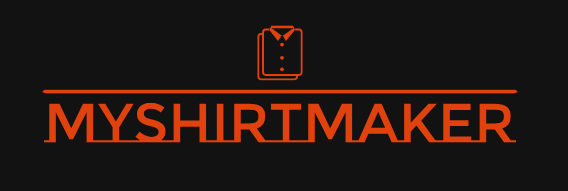Why Critical Thinking Skills? A Modern Necessity

Discover what Critical Thinking Skills are, why they are essential for success in all aspects of life, and how they empower informed decisions.
Key Takeaways:
- Critical Thinking Skills involve objective analysis and evaluation of information.
- They are vital for problem-solving, decision-making, and navigating complex situations.
- Cultivating Critical Thinking Skills helps identify bias, logical fallacies, and misinformation.
- These skills are highly valued in academic, professional, and personal contexts.
- Developing Critical Thinking fosters intellectual independence and adaptability.
What are Critical Thinking Skills?
In a world overflowing with information, where opinions often masquerade as facts and complex issues demand nuanced understanding, the ability to think critically has never been more paramount. But what exactly are Critical Thinking Skills? They are not merely about accumulating knowledge; rather, they encompass the intellectual discipline of actively and skillfully conceptualizing, applying, analyzing, synthesizing, and/or evaluating information gathered from, or generated by, observation, experience, reflection, reasoning, or communication, as a guide to belief and action. In simpler terms, it’s the art of thinking about thinking – clearly, rationally, and independently.
Imagine being presented with a problem or a claim. Someone with strong wouldn’t simply accept it at face value. Instead, they would question assumptions, scrutinize evidence, consider alternative perspectives, identify potential biases (their own and others’), and logically deduce the most reasonable conclusion or course of action. This involves a range of cognitive processes: analyzing arguments, drawing inferences, making judgments, and solving problems effectively. It’s about moving beyond superficial understanding to delve into the depths of an issue, distinguishing between valid arguments and fallacious reasoning. In essence, Thinking Skills enable us to navigate complexity, make sound decisions, and avoid being swayed by faulty logic or manipulative tactics, empowering us to become more discerning individuals in all aspects of life.
Why are Critical Skills Essential?
The question, “Why are Critical Thinking Skills essential?” can be answered by observing the demands of the modern world. Firstly, in an age of information overload and pervasive misinformation, Critical Thinking Skills are our primary defense against being misled. Without them, individuals are susceptible to false narratives, propaganda, and scams, which can have significant personal and societal consequences. The ability to evaluate sources, identify logical fallacies, and discern facts from opinions is fundamental to making informed decisions, whether it’s about health, finances, or political choices.
Secondly, these skills are indispensable for effective problem-solving. Life, both personal and professional, is replete with challenges that require more than just rote memorization or following instructions. Whether it’s troubleshooting a technical issue, resolving a workplace conflict, or developing a new business strategy, Critical Thinking Skills enable us to break down complex problems, analyze contributing factors, brainstorm creative solutions, and evaluate their potential outcomes. Thirdly, they are highly valued in the workplace. Employers increasingly seek individuals who can think independently, adapt to new situations, innovate, and contribute to strategic decision-making. Beyond specific tasks, foster intellectual independence and continuous learning, making individuals more adaptable and resilient in a rapidly changing world. Their essential nature lies in their capacity to empower individuals to navigate complexity, make sound judgments, and contribute meaningfully to society.
How Do Critical Develop?
Developing Critical Thinking Skills is not an innate talent but a learned ability, cultivated through consistent practice and exposure to diverse perspectives. It often begins with fostering a habit of questioning. Instead of passively accepting information, individuals learn to ask “why,” “how,” and “what if.” This involves challenging assumptions, both their own and those presented by others. A key component of development is learning to analyze information systematically. This means breaking down arguments into their constituent parts, identifying premises and conclusions, and scrutinizing the evidence provided.
Furthermore, the development of Critical Thinking Skills heavily relies on exposure to different viewpoints and engaging in constructive debate. Discussing ideas, listening actively to opposing arguments, and being open to changing one’s mind based on new evidence are crucial for intellectual growth. Practicing logical reasoning through exercises, puzzles, and real-world problem scenarios also plays a vital role in honing these skills. Educators can facilitate this by encouraging active learning, project-based work, and Socratic questioning in classrooms. Ultimately, the continuous development of Critical Thinking Skills involves a commitment to intellectual curiosity, a willingness to challenge the status quo, and the disciplined application of logical and analytical processes to all forms of information and challenges encountered. It’s a lifelong journey of intellectual refinement.
Who Benefits from Thinking?
Virtually everyone stands to benefit significantly from cultivating strong Critical Skills, making them an invaluable asset in all walks of life. Primarily, individuals benefit immensely. They gain the power to make more informed personal decisions, whether it pertains to health choices, financial investments, or even choosing entertainment. This leads to greater personal autonomy, reduced susceptibility to manipulation, and a more fulfilling intellectual life. Students are major beneficiaries, as these skills are fundamental to academic success, enabling them to comprehend complex texts, conduct rigorous research, analyze data, and construct well-reasoned arguments in essays and presentations.
In the professional sphere, Critical Thinking Skills are highly sought after across all industries. Employees who can analyze problems, evaluate options, and propose effective solutions are invaluable assets. Leaders rely on them to make strategic decisions, manage teams effectively, and innovate in competitive markets. From doctors diagnosing complex illnesses to engineers designing safe structures, and lawyers building compelling cases, these skills are the bedrock of professional excellence. Beyond the individual, society as a whole benefits from a populace equipped with Critical Thinking Skills. It fosters a more engaged and discerning citizenry, capable of participating intelligently in democratic processes, resisting the spread of misinformation, and collectively addressing complex global challenges, leading to a more robust, informed, and progressive society.
Where are Critical Thinking Skills Applied?
Critical Thinking Skills are not confined to academic debates or philosophical discussions; they are applied across the entire spectrum of human activity, often subtly integrated into our daily routines. In our personal lives, we use them when evaluating product reviews before making a purchase, deciding which news sources to trust, or troubleshooting a malfunctioning appliance. When faced with a personal dilemma, such as a career change or a relationship issue, applying Critical Thinking helps weigh pros and cons, consider potential outcomes, and make a reasoned decision.
In the workplace, these skills are paramount. A marketing professional uses them to analyze campaign results and identify areas for improvement. A software developer applies them to debug code and optimize system performance. Healthcare professionals utilize them for accurate diagnoses and treatment planning. Managers rely on them to assess team performance, allocate resources, and develop strategic plans. Furthermore, in the realm of civic engagement and public discourse, Critical Thinking Skills are vital. They are applied when evaluating political rhetoric, understanding complex policy debates, identifying logical fallacies in arguments presented by media or politicians, and engaging in informed discussions about societal issues. From deciphering a scientific study to budgeting household expenses, the ability to analyze, evaluate, and synthesize information is constantly at play, making Critical Thinking Skills truly pervasive and indispensable in the modern world.







